- Home
- L. Ron Hubbard
The Dive Bomber
The Dive Bomber Read online
SELECTED FICTION WORKS
BY L. RON HUBBARD
FANTASY
The Case of the Friendly Corpse
Death’s Deputy
Fear
The Ghoul
The Indigestible Triton
Slaves of Sleep & The Masters of Sleep
Typewriter in the Sky
The Ultimate Adventure
SCIENCE FICTION
Battlefield Earth
The Conquest of Space
The End Is Not Yet
Final Blackout
The Kilkenny Cats
The Kingslayer
The Mission Earth Dekalogy*
Ole Doc Methuselah
To the Stars
ADVENTURE
The Hell Job series
WESTERN
Buckskin Brigades
Empty Saddles
Guns of Mark Jardine
Hot Lead Payoff
A full list of L. Ron Hubbard’s
novellas and short stories is provided at the back.
*Dekalogy: a group of ten volumes
Published by
Galaxy Press, LLC
7051 Hollywood Boulevard, Suite 200
Hollywood, CA 90028
Copyright © 2012 L. Ron Hubbard Library. All Rights Reserved.
Any unauthorized copying, translation, duplication, importation or distribution, in whole or in part, by any means, including electronic copying, storage or transmission, is a violation of applicable laws.
Mission Earth is a trademark owned by L. Ron Hubbard Library and is used with permission. Battlefield Earth is a trademark owned by Author Services, Inc. and is used with permission.
Cover art and Story Preview illustration: Argosy Magazine is © 1935, 1936 Argosy Communications, Inc. All Rights Reserved. Reprinted with permission from Argosy Communications, Inc. Horsemen illustration from Western Story Magazine is © and ™ Condé Nast Publications and is used with their permission. Fantasy, Far-Flung Adventure and Science Fiction illustrations: Unknown and Astounding Science Fiction copyright © by Street & Smith Publications, Inc. Reprinted with permission of Penny Publications, LLC.
ISBN 978-1-59212-555-5 ePub version
ISBN 978-1-59212-311-7 print version
ISBN 978-1-59212-230-1 audiobook version
Library of Congress Control Number: 2007903607
Contents
FOREWORD
THE DIVE BOMBER
CHAPTER ONE
CHAPTER TWO
CHAPTER THREE
CHAPTER FOUR
CHAPTER FIVE
CHAPTER SIX
CHAPTER SEVEN
CHAPTER EIGHT
CHAPTER NINE
CHAPTER TEN
CHAPTER ELEVEN
CHAPTER TWELVE
STORY PREVIEW:
THE LIEUTENANT TAKES THE SKY
L. RON HUBBARD
IN THE GOLDEN AGE
OF PULP FICTION
THE STORIES FROM THE
GOLDEN AGE
GLOSSARY
FOREWORD
Stories from
Pulp Fiction’s
Golden Age
AND it was a golden age.
The 1930s and 1940s were a vibrant, seminal time for a gigantic audience of eager readers, probably the largest per capita audience of readers in American history. The magazine racks were chock-full of publications with ragged trims, garish cover art, cheap brown pulp paper, low cover prices—and the most excitement you could hold in your hands.
“Pulp” magazines, named for their rough-cut, pulpwood paper, were a vehicle for more amazing tales than Scheherazade could have told in a million and one nights. Set apart from higher-class “slick” magazines, printed on fancy glossy paper with quality artwork and superior production values, the pulps were for the “rest of us,” adventure story after adventure story for people who liked to read. Pulp fiction authors were no-holds-barred entertainers—real storytellers. They were more interested in a thrilling plot twist, a horrific villain or a white-knuckle adventure than they were in lavish prose or convoluted metaphors.
The sheer volume of tales released during this wondrous golden age remains unmatched in any other period of literary history—hundreds of thousands of published stories in over nine hundred different magazines. Some titles lasted only an issue or two; many magazines succumbed to paper shortages during World War II, while others endured for decades yet. Pulp fiction remains as a treasure trove of stories you can read, stories you can love, stories you can remember. The stories were driven by plot and character, with grand heroes, terrible villains, beautiful damsels (often in distress), diabolical plots, amazing places, breathless romances. The readers wanted to be taken beyond the mundane, to live adventures far removed from their ordinary lives—and the pulps rarely failed to deliver.
In that regard, pulp fiction stands in the tradition of all memorable literature. For as history has shown, good stories are much more than fancy prose. William Shakespeare, Charles Dickens, Jules Verne, Alexandre Dumas—many of the greatest literary figures wrote their fiction for the readers, not simply literary colleagues and academic admirers. And writers for pulp magazines were no exception. These publications reached an audience that dwarfed the circulations of today’s short story magazines. Issues of the pulps were scooped up and read by over thirty million avid readers each month.
Because pulp fiction writers were often paid no more than a cent a word, they had to become prolific or starve. They also had to write aggressively. As Richard Kyle, publisher and editor of Argosy, the first and most long-lived of the pulps, so pointedly explained: “The pulp magazine writers, the best of them, worked for markets that did not write for critics or attempt to satisfy timid advertisers. Not having to answer to anyone other than their readers, they wrote about human beings on the edges of the unknown, in those new lands the future would explore. They wrote for what we would become, not for what we had already been.”
Some of the more lasting names that graced the pulps include H. P. Lovecraft, Edgar Rice Burroughs, Robert E. Howard, Max Brand, Louis L’Amour, Elmore Leonard, Dashiell Hammett, Raymond Chandler, Erle Stanley Gardner, John D. MacDonald, Ray Bradbury, Isaac Asimov, Robert Heinlein—and, of course, L. Ron Hubbard.
In a word, he was among the most prolific and popular writers of the era. He was also the most enduring—hence this series—and certainly among the most legendary. It all began only months after he first tried his hand at fiction, with L. Ron Hubbard tales appearing in Thrilling Adventures, Argosy, Five-Novels Monthly, Detective Fiction Weekly, Top-Notch, Texas Ranger, War Birds, Western Stories, even Romantic Range. He could write on any subject, in any genre, from jungle explorers to deep-sea divers, from G-men and gangsters, cowboys and flying aces to mountain climbers, hard-boiled detectives and spies. But he really began to shine when he turned his talent to science fiction and fantasy of which he authored nearly fifty novels or novelettes to forever change the shape of those genres.
Following in the tradition of such famed authors as Herman Melville, Mark Twain, Jack London and Ernest Hemingway, Ron Hubbard actually lived adventures that his own characters would have admired—as an ethnologist among primitive tribes, as prospector and engineer in hostile climes, as a captain of vessels on four oceans. He even wrote a series of articles for Argosy, called “Hell Job,” in which he lived and told of the most dangerous professions a man could put his hand to.
Finally, and just for good measure, he was also an accomplished photographer, artist, filmmaker, musician and educator. But he was first and foremost a writer, and that’s the L. Ron Hubbard we come to know through the pages of this volume.
This library of Stories from the Golden Age presents the best of L. Ron Hubbard’s fiction from the heyday of storytelling, the Golden Age of the pulp magazines. In these eighty volumes, readers are treated to a full banquet of 153 stories, a kaleidoscope of tales representing every imaginable genre: science fiction, fantasy, western, mystery, thriller, horror, even romance—action of all kinds and in all places.
Because the pulps themselves were printed on such inexpensive paper with high acid content, issues were not meant to endure. As the years go by, the original issues of every pulp from Argosy through Zeppelin Stories continue crumbling into brittle, brown dust. This library preserves the L. Ron Hubbard tales from that era, presented with a distinctive look that brings back the nostalgic flavor of those times.
L. Ron Hubbard’s Stories from the Golden Age has something for every taste, every reader. These tales will return you to a time when fiction was good clean entertainment and the most fun a kid could have on a rainy afternoon or the best thing an adult could enjoy after a long day at work.
Pick up a volume, and remember what reading is supposed to be all about. Remember curling up with a great story.
—Kevin J. Anderson
KEVIN J. ANDERSON is the author of more than ninety critically acclaimed works of speculative fiction, including The Saga of Seven Suns, the continuation of the Dune Chronicles with Brian Herbert, and his New York Times bestselling novelization of L. Ron Hubbard’s Ai! Pedrito!
The Dive Bomber
CHAPTER ONE
Once the Tops
LOOK here, Mr. O’Neal, I can’t let you kill yourself with that ship!”
Lucky Martin said it earnestly a
nd loyally and, as he always did, he meant just exactly what he said. And, as Number One test pilot in the United States, Lucky Martin’s opinions on the subject of ships was not commonly thrust aside.
But the instant he uttered those words he knew that he could have said nothing worse. No profanity could have goaded O’Neal into the rage which swelled him out to the red bursting point.
“So, you too!” roared Big Tom O’Neal. “And I thought you were my friend. I know now. You’ve been talking about it, you’re the one that started it.… Who the hell built this ship, anyway?”
“You did,” said Lucky Martin, in despair.
“Who tested the first bomber the Navy ever bought?”
“You did,” gulped Lucky Martin.
“Of course I did, but you and all the others are yammering about how old I’m getting. I’m forty-six, see? Forty-six isn’t old! I’ve got my transport, haven’t I? I passed the last Department physical, didn’t I? And I’m the oldest test pilot in the business, ain’t I? And who owns O’Neal Aircraft Company? I ask you that!”
“You do,” said Lucky very miserably.
“There, you admit I’m competent to test my own ship before these people.”
“Sure…but—”
“But what, you whelp?”
Lucky sent an appealing glance to Dixie O’Neal and she needed no urging to intercede. Dixie, knowing that one of these two men would have to test the ship and loving them equally, she threw her strength on the side of the one who might be expected to come out best—Lucky Martin.
“Dad, you’re too old for grandstanding. You ought to know better. Nobody questions your ability. Lucky is here to do this work and you know what they said about your heart. Don’t try the gravity test, please, Dad. You know that’s how men get killed. They go out like…”
Big, blustering, ungainly Tom O’Neal, renowned for a stubborn disposition, took this as a new affront. Seeing that Lucky and Dixie had united forces, instead of bowing gracefully, he let his anger get away from him entirely.
He blasted them with a voice three times louder than a Cyclone in a dive. He told them they were impertinent, that they were hardly dry behind the ears, that their opinions carried less weight than a Duralumin girder and that their skulls were filled with the purest of ozone.
He was very unjust. Lucky Martin had not come by his own reputation without ample merit and, as everybody knew the length and breadth of the Atlantic seaboard, Dixie O’Neal was as bright as she was beautiful, which savored of hyperbole.
Stung by the fact that he was getting old and that he was no longer considered the best in the business, Tom O’Neal forgot that his prominence was at present wholly based on his ownership of this big plant, and upon his cunning in designing of fighting ships for the Army and Navy.
Through the office door they could all see the restless crowd which stood on the edge of the field—a crowd which waited in the full expectancy of seeing a man die that day.
Tom O’Neal settled the argument by picking up his helmet and goggles and, glaring at his daughter and his future son-in-law, stalked out toward the waiting dive bomber.
Commander Lawson stopped him for an instant and shook his hand. “Hope it goes all right, Tom. Lucky off his feed?”
“Damn Lucky,” growled O’Neal. “He says I’m getting too old.”
“But out of respect for Dixie—” began Lawson.
“Damn Dixie!”
Scandalized, the kind-faced, portly naval officer blinked his sea-faded eyes at the aircraft ahead, and went two-thirds speed astern and out of the slipstream which was beginning to blast back from the prop.
Lucky Martin, looking down in spirit and rather hopeless, loafed out of the office, hands in his pockets, helmet buckle dangling beside his square jaw.
He was six feet tall, but his shoulders were so broad that he looked to be of average height until he walked through and towered over a crowd. The only thing which marred his looks was a scar running from his chin to his ear, put there by a shed wing which had almost torn his head off before he could get out of the plummeting fuselage. The scar marred his beauty, but infinitely increased the glamour which hung about him.
His was a profession in which men are often killed thoroughly. But unlike those test pilots who merchandise their danger, Lucky had very little to say and a great deal to do. He did his job efficiently and well and if it had not been for the scar he would have passed anywhere for an especially good-looking boxer or sailor or ditch digger or a cop or movie actor.
O’Neal kicked the gun with the heel of his hand and sent the dive bomber skidding around into takeoff position. With a triumphant glare at Lucky, O’Neal pushed the stick into the panel, took his heels off the brakes and went away from there like a shot silver arrow—which might or might not fall in one piece.
“He’s a brave man,” said Lucky in appreciation, trying to appear calm and light a cigarette, but unable to make the match and smoke connect.
“He’s a damned fool!” said Commander Lawson.
“Is there any difference?” replied Lucky.
“None,” said Dixie, coming up and trying hard to keep the tension out of her husky voice, obeying the flying code by being excited at nothing.
The group of officers, mechanics, civilians, pilots and a couple of state troopers who had come down from the highway above watched the stubby little ship snarl skyward for altitude.
Once in a while somebody sighed explosively and immediately looked embarrassed. People tried to talk about things which didn’t matter, only to find that they didn’t matter after all. Restless and expecting the worst, but hoping for the best, the crowd stared until necks ached and the dive bomber became only an occasional sparkle of wings in the dazzling blue of the cloudless sky.
Dixie frayed the corner of a small red handkerchief and, without taking her eyes from the faraway, droning flash, reached out and took hold of Lucky’s arm as though to steady herself.
“He’s all right,” said Lucky, finding his throat dry.
“Sure he is,” said Dixie, never once losing sight of the ship now ten thousand feet above them.
“It’s a good plane,” said Commander Lawson. “Took all its other tests in top shape. But I don’t think it can stand…I mean, sure it will. The Navy needs a dive bomber like that. Never did have a good one. Wings always folding back on them. Takes real stamina for a ship to stick in the groove and come out without losing anything but its bombs. A ten-thousand-foot dive at terminal velocity is too much for any…I mean, sure it will.”
“You bet,” said a strange fellow Lucky had not so far noticed.
“You know Mr. Bullard, Martin?” said Lawson.
Lucky looked sideways to find a man who was as tall as he was but who weighed at least two hundred pounds more. Bullard’s fat looked like it had been hung on him roll by roll. His brows bulged over small, quick eyes. His jaw protruded loosely, hiding his collar and tie. His paunch looked as though he had moored a blimp to his belt and let some of the helium out. A giant who rumbled rather than talked, who grinned eternally, Bullard possessed a heartiness which was too studied to be casual.
“Hello,” said Lucky, looking back up at the ship.
“The great Lucky Martin,” said Bullard, taking the pilot’s hard palm in the fat folds of his own and shaking it. “Well, this is a pleasure. I hear you’re to be the next boss in case anything happens.…”
Lucky looked steadily into the shifty eyes. “What did you say?”
“I said you’re sure Lucky, you sure deserve that name. Is this the pretty lady you’re going to marry? Well, well, Lucky is putting it much too mild. Always good politics to marry the daughter of…”
The crack of Lucky’s backhand against the fat mouth jarred the otherwise silent field.
Bullard’s eyes glowed redly, but he grinned and bowed and scraped. “I didn’t mean any harm, Mr. Martin. I’m sorry I said it, though it did…”
“He’s coming down!” yelled a mechanic named Lefty Flynn.
Forgotten was Bullard. The song of the dive bomber’s engine had been a soft whisper before. Now the sound began to rise in pitch and volume, to a hoarse roar, upward to a rasping snarl, and higher still to a shrill, hammering scream which stabbed down and bludgeoned the field.

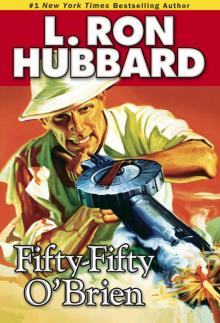 Fifty-Fifty O'Brien
Fifty-Fifty O'Brien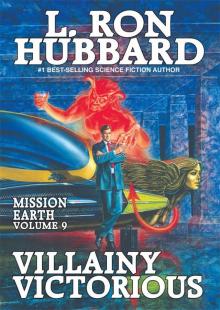 Villainy Victorious
Villainy Victorious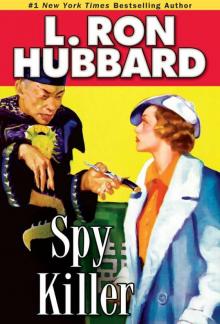 Spy Killer
Spy Killer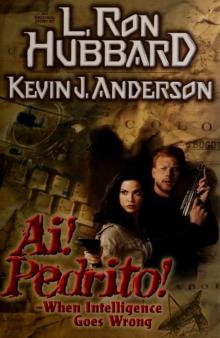 Ai! Pedrito!: When Intelligence Goes Wrong
Ai! Pedrito!: When Intelligence Goes Wrong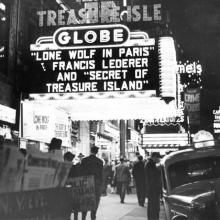 The Dangerous Dimension
The Dangerous Dimension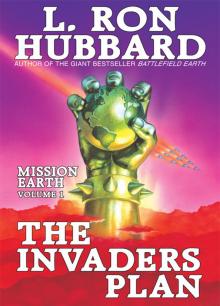 Mission Earth Volume 1: The Invaders Plan
Mission Earth Volume 1: The Invaders Plan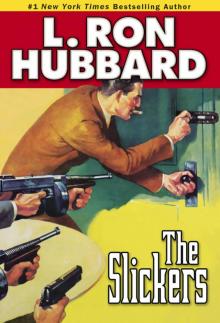 The Slickers
The Slickers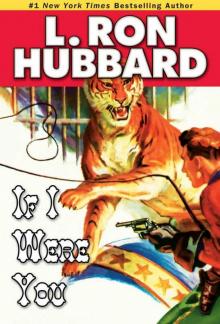 If I Were You
If I Were You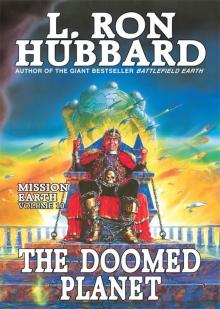 The Doomed Planet
The Doomed Planet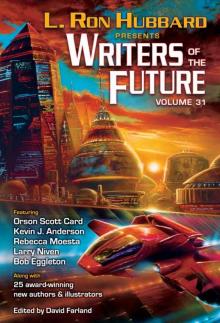 Writers of the Future Volume 31
Writers of the Future Volume 31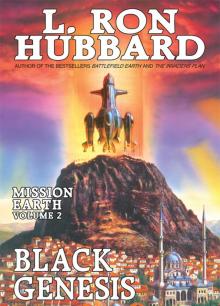 Mission Earth Volume 2: Black Genesis
Mission Earth Volume 2: Black Genesis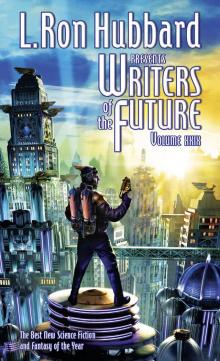 Writers of the Future: 29
Writers of the Future: 29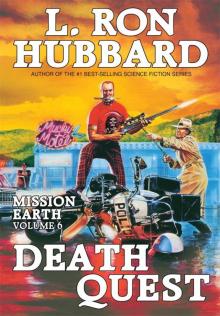 Death Quest
Death Quest The Enemy Within
The Enemy Within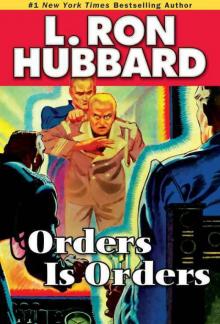 Orders Is Orders
Orders Is Orders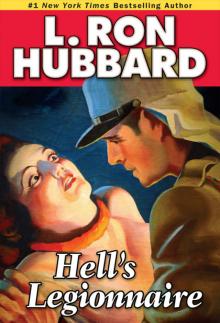 Hell's Legionnaire
Hell's Legionnaire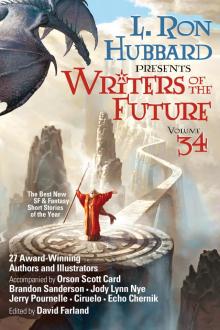 L. Ron Hubbard Presents Writers of the Future 34
L. Ron Hubbard Presents Writers of the Future 34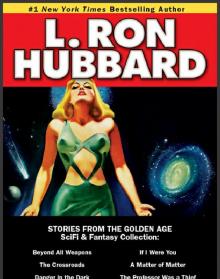 The Scifi & Fantasy Collection
The Scifi & Fantasy Collection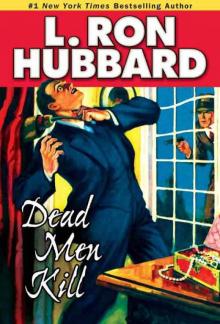 Dead Men Kill
Dead Men Kill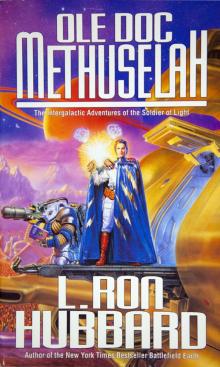 Ole Doc Methuselah: The Intergalactic Adventures of the Soldier of Light
Ole Doc Methuselah: The Intergalactic Adventures of the Soldier of Light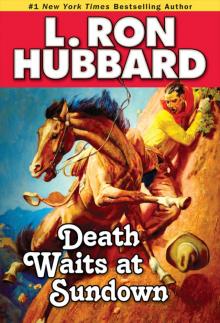 Shadows From Boot Hill
Shadows From Boot Hill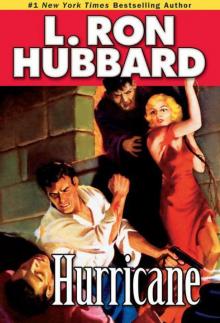 Hurricane
Hurricane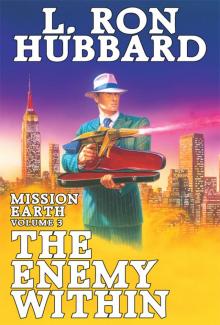 Mission Earth Volume 3: The Enemy Within
Mission Earth Volume 3: The Enemy Within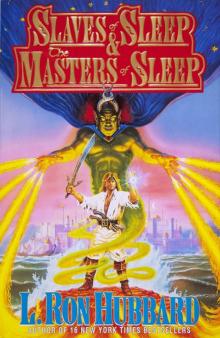 Slaves of Sleep & the Masters of Sleep
Slaves of Sleep & the Masters of Sleep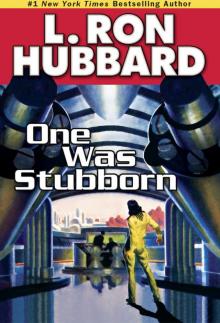 One Was Stubborn
One Was Stubborn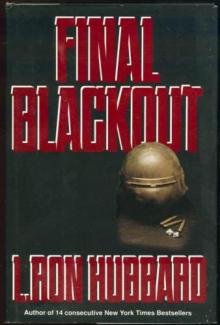 Final Blackout: A Futuristic War Novel
Final Blackout: A Futuristic War Novel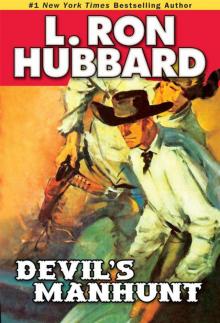 Devil's Manhunt
Devil's Manhunt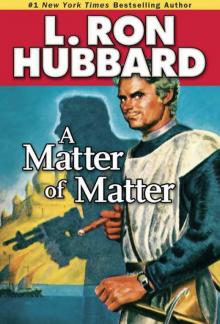 A Matter of Matter
A Matter of Matter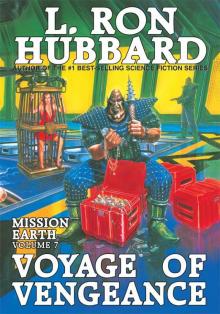 Voyage of Vengeance
Voyage of Vengeance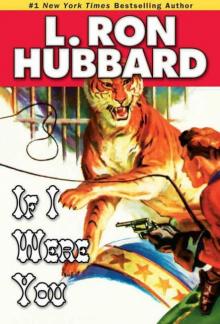 If I Were You (Science Fiction & Fantasy Short Stories Collection)
If I Were You (Science Fiction & Fantasy Short Stories Collection)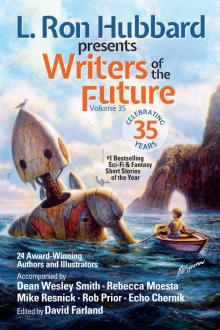 L. Ron Hubbard Presents Writers of the Future Volume 35
L. Ron Hubbard Presents Writers of the Future Volume 35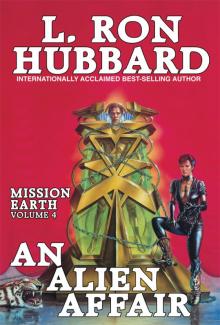 Mission Earth Volume 4: An Alien Affair
Mission Earth Volume 4: An Alien Affair Black Genesis
Black Genesis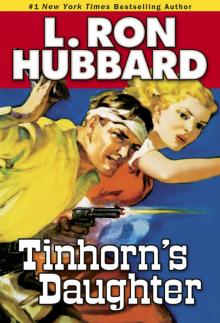 Tinhorn's Daughter
Tinhorn's Daughter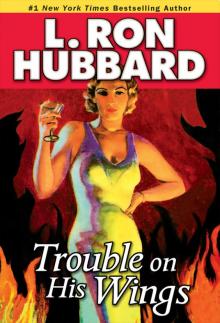 Trouble on His Wings
Trouble on His Wings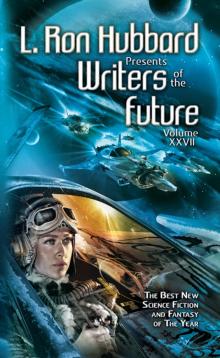 Writers of the Future Volume 27: The Best New Science Fiction and Fantasy of the Year
Writers of the Future Volume 27: The Best New Science Fiction and Fantasy of the Year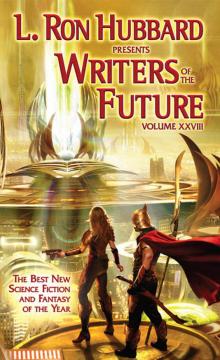 Writers of the Future Volume 28: The Best New Science Fiction and Fantasy of the Year
Writers of the Future Volume 28: The Best New Science Fiction and Fantasy of the Year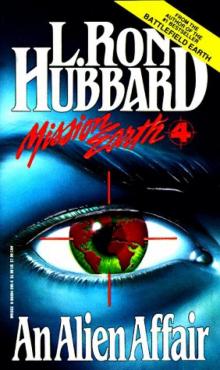 An Alien Affair
An Alien Affair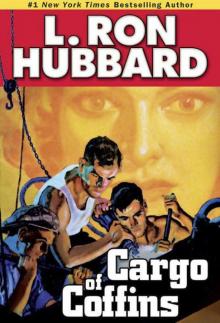 Cargo of Coffins
Cargo of Coffins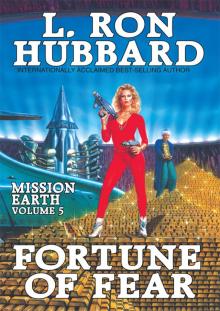 Mission Earth Volume 5: Fortune of Fear
Mission Earth Volume 5: Fortune of Fear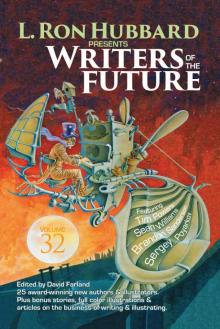 Writers of the Future 32 Science Fiction & Fantasy Anthology
Writers of the Future 32 Science Fiction & Fantasy Anthology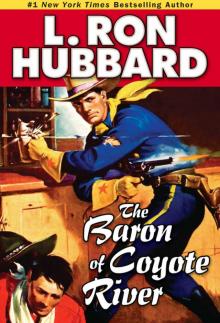 The Baron of Coyote River
The Baron of Coyote River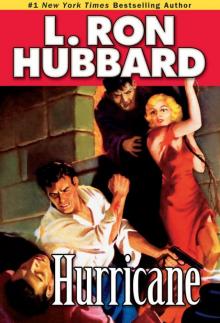 Hurricane (Stories From the Golden Age)
Hurricane (Stories From the Golden Age)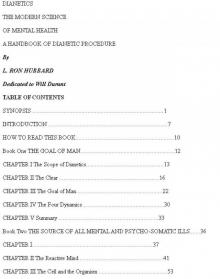 Dianetics: The Modern Science of Mental Health
Dianetics: The Modern Science of Mental Health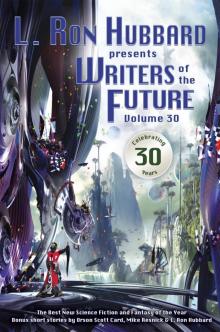 Writers of the Future, Volume 30
Writers of the Future, Volume 30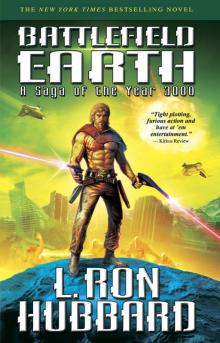 Battlefield Earth: A Saga of the Year 3000
Battlefield Earth: A Saga of the Year 3000 Fear
Fear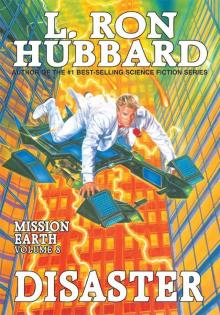 Disaster
Disaster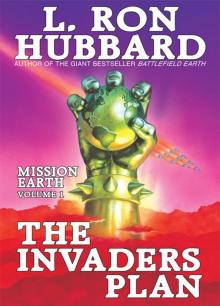 Invaders Plan, The: Mission Earth Volume 1
Invaders Plan, The: Mission Earth Volume 1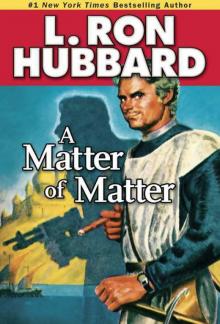 A Matter of Matter (Stories from the Golden Age)
A Matter of Matter (Stories from the Golden Age)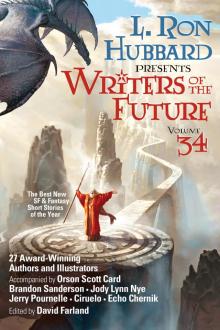 Writers of the Future Volume 34
Writers of the Future Volume 34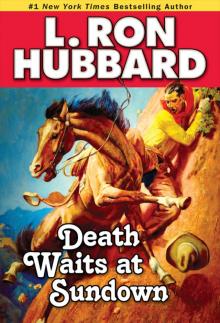 Death Waits at Sundown
Death Waits at Sundown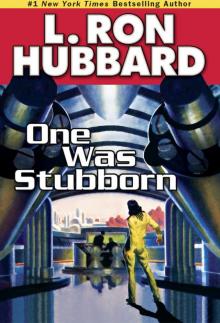 One Was Stubbron
One Was Stubbron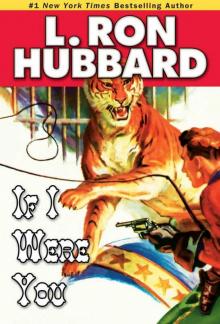 If I Were You (Stories from the Golden Age)
If I Were You (Stories from the Golden Age)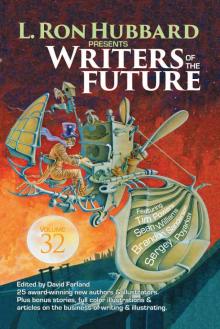 Writers of the Future 32 Science Fiction & Fantasy Anthology (L. Ron Hubbard Presents Writers of the Future)
Writers of the Future 32 Science Fiction & Fantasy Anthology (L. Ron Hubbard Presents Writers of the Future)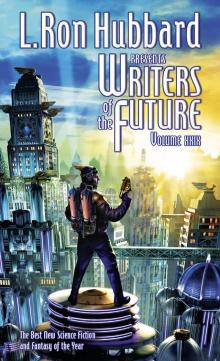 Writers of the Future, Volume 29
Writers of the Future, Volume 29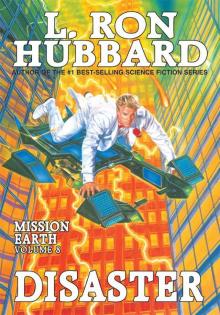 Mission Earth Volume 8: Disaster
Mission Earth Volume 8: Disaster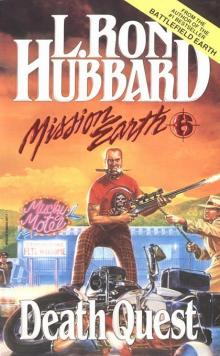 Mission Earth 6: Death Quest
Mission Earth 6: Death Quest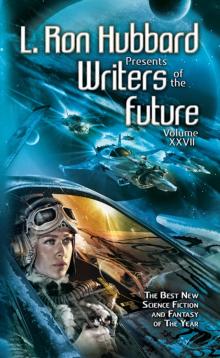 Writers of the Future, Volume 27
Writers of the Future, Volume 27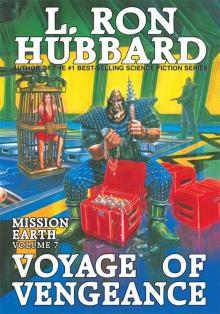 Mission Earth Volume 7: Voyage of Vengeance
Mission Earth Volume 7: Voyage of Vengeance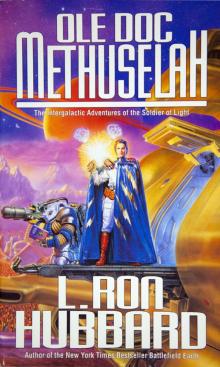 Ole Doc Methuselah
Ole Doc Methuselah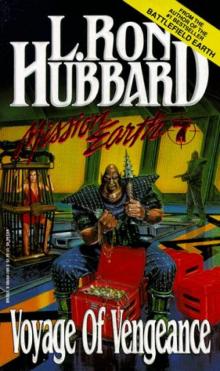 Mission Earth 07: Voyage of Vengeance
Mission Earth 07: Voyage of Vengeance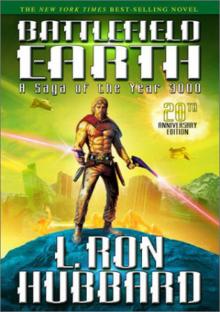 Battlefield Earth
Battlefield Earth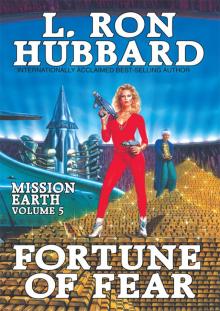 Fortune of Fear
Fortune of Fear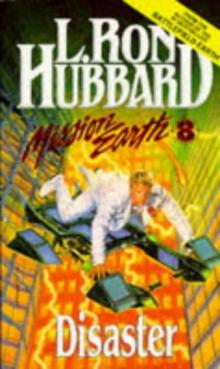 Mission Earth 8: Disaster
Mission Earth 8: Disaster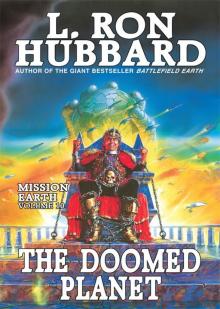 Mission Earth Volume 10: The Doomed Planet
Mission Earth Volume 10: The Doomed Planet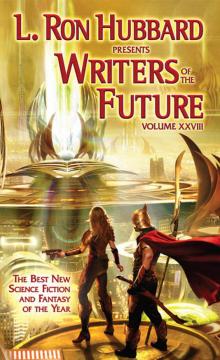 Writers of the Future, Volume 28
Writers of the Future, Volume 28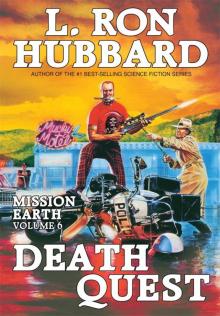 Mission Earth Volume 6: Death Quest
Mission Earth Volume 6: Death Quest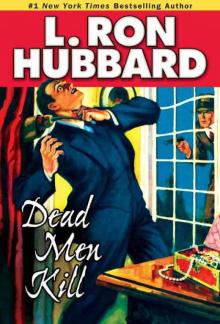 Dead Men Kill (Stories from the Golden Age)
Dead Men Kill (Stories from the Golden Age)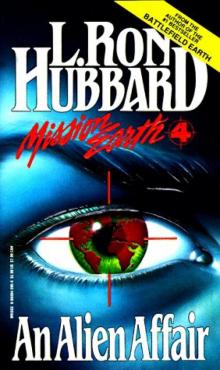 Mission Earth 4: An Alien Affair
Mission Earth 4: An Alien Affair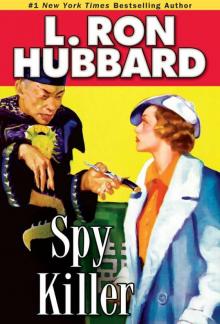 Spy Killer (Stories from the Golden Age)
Spy Killer (Stories from the Golden Age)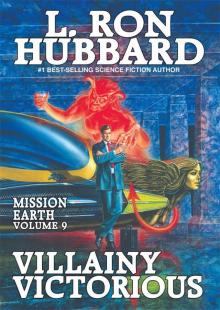 Mission Earth Volume 9: Villainy Victorious
Mission Earth Volume 9: Villainy Victorious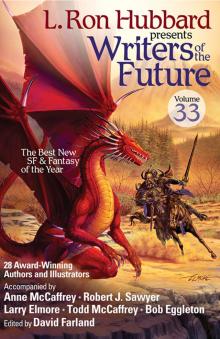 L. Ron Hubbard Presents Writers of the Future, Volume 33
L. Ron Hubbard Presents Writers of the Future, Volume 33